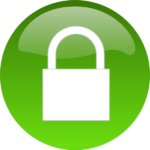Security and giving away information
Security isn’t just down to other people choosing not to hack your device or a service you use – you have some control and some responsibilities too. As part of our ongoing weekly series on security, we review three measures you can take today to increase your security and privacy and that of the people you communicate with.
Keep distribution lists private
 How often do you get an email from someone that includes swathes of other email addresses in the Cc field? Lucky you if the answer is ‘not often’. Dare I ask how often you *send* an email like that?
How often do you get an email from someone that includes swathes of other email addresses in the Cc field? Lucky you if the answer is ‘not often’. Dare I ask how often you *send* an email like that?
It’s bad manners to reveal lots of email addresses that have been displayed without their owners’ consent. It looks amateurish and spoils the layout of your email. Some recipients will realise it’s hardly personal and delete without bothering to read it.
So how do you prevent this and avoid jeopardising other people’s security? It’s very simple: when sending a mass email ensure that the recipient addresses go in the Bcc (blind ‘carbon’ copy) field. Put your own address in the To field. That’s all it takes.
Be careful what information you record
It’s too easy to keep up a running commentary across the breathtaking range of social media opportunities. Add to that devices that we actively configure to record our sleep, exercise, health. We can even record our driving experience with dashboard cams.
Proving your innocence
The innocent face of this is to increase our own security and protect ourselves (proof that that white van simply pulled out in front of you). It helps us optimise our lifestyle for the benefit of our health. Consider though the implications of being on the wrong side of the law or a dispute. Clearly we aren’t going to encourage anybody to with-hold evidence or do anything shady, but put it like this: information you don’t record can’t be twisted to be used against you.
Just imagine the fun an insurance company (yours, or someone else’s) could have with your health and fitness data. What if it could be proved that you were sleep-deprived or fasting the morning you had a car accident (consider this case ongoing in Canada)? What if you’d used Twitter to vent your frustration with a child the day that child breaks an arm? You’d be innocent, but now you may have to prove that because of the information you’ve broadcast and/or recorded.
You’ve all heard of children having parties while their parents are away. The time and venue made it onto social media and 300 uninvited guests arrived, with predictable results. Hilarious. What a numpty. But take a step back and draw the connection between that and the situation you could be creating for yourself.
Kill off obsolete accounts
Over the years we accumulate vast numbers of accounts. These accumulate across forums, social networking, journal log-ins, multiple email accounts etc etc. It’s worth revisiting these from time to time and deleting any that you’re sure you no longer need. This minimises your exposure to hacking attacks as well as reducing the amount of information about you that’s available on the internet.
In most cases, certainly for personal non-work related accounts, it’s advisable to avoid using your real name for display purposes. Clearly professional sites such as LinkedIn are an exception. And remember – never EVER re-use a password.
